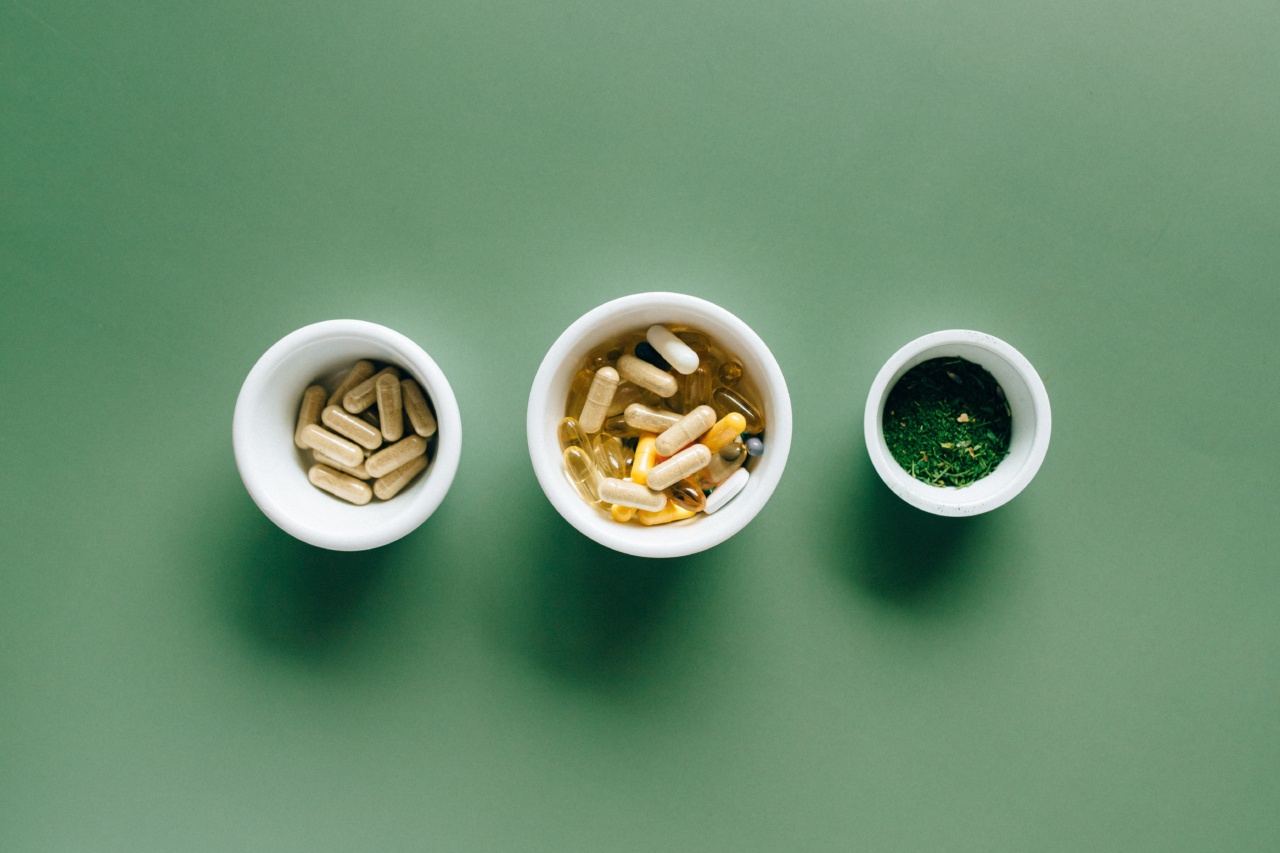Our mood plays a crucial role in our overall well-being. It affects our productivity, relationships, and overall quality of life.
While there can be various factors that influence our mood, diet and nutrition play a significant role in regulating emotions and enhancing mood.
2. Serotonin-Boosting Vitamins and Supplements
Serotonin is a neurotransmitter that is often referred to as the “feel-good” hormone as it helps regulate mood, appetite, and sleep. Here are some vitamins and supplements that can boost serotonin levels:.
3. Vitamin B Complex
Vitamin B complex consists of eight different vitamins, including B1, B2, B3, B5, B6, B7, B9, and B12. These vitamins are essential for various bodily functions, including the production of neurotransmitters such as serotonin.
A deficiency in B vitamins can lead to low serotonin levels, resulting in a decline in mood. Including foods rich in vitamin B or taking a vitamin B complex supplement can help enhance mood.
4. Omega-3 Fatty Acids
Omega-3 fatty acids, particularly EPA (eicosapentaenoic acid) and DHA (docosahexaenoic acid), are known for their numerous health benefits. These essential fatty acids are primarily found in fatty fish like salmon, tuna, and mackerel.
Omega-3 fatty acids play a vital role in brain health and have been linked to improved mood and reduced symptoms of depression. If you’re not a fan of fish, you can also opt for high-quality fish oil supplements to reap the benefits.
5. Vitamin D
Vitamin D, also known as the sunshine vitamin, is produced by the body when exposed to sunlight. It plays a crucial role in regulating mood and warding off depression.
However, many individuals have inadequate levels of vitamin D, especially during the winter months or in regions with limited sunlight. Increasing your vitamin D intake through supplements can help improve your mood and overall well-being.
6. Magnesium
Magnesium is an essential mineral that plays a key role in various bodily functions, including mood regulation. It is involved in over 300 enzyme reactions in the body.
Low levels of magnesium have been associated with increased symptoms of depression and anxiety. Including magnesium-rich foods in your diet, such as leafy green vegetables, nuts, and seeds, or taking magnesium supplements can help enhance your mood.
7. Probiotics
The gut-brain connection is a fascinating area of research, and scientists have discovered that the health of our gut can impact our mood. Probiotics are beneficial bacteria that promote a healthy gut microbiome.
Consuming probiotic-rich foods like yogurt or taking probiotic supplements can help improve gut health and positively influence mood and mental well-being.
8. Ashwagandha
Ashwagandha is an adaptogenic herb used in traditional Ayurvedic medicine. It has been associated with reducing stress and anxiety levels and enhancing overall mood.
Ashwagandha supplements are readily available and can be added to your daily routine to support a positive mood.
9. 5-HTP
5-HTP (5-hydroxytryptophan) is a compound that is naturally produced by the body. It is an intermediate step between tryptophan and serotonin synthesis.
5-HTP supplements are derived from the seeds of the Griffonia simplicifolia plant and are commonly used to increase serotonin levels. However, it’s important to consult with a healthcare professional before starting any new supplements.
10. St. John’s Wort
St. John’s Wort is a herbal supplement that has been traditionally used to treat mild to moderate depression. It is believed to work by increasing the levels of serotonin, dopamine, and norepinephrine in the brain.
However, it can interact with certain medications, so it’s crucial to seek guidance from a healthcare professional before using it.
11. Conclusion
While vitamins and supplements can play a role in enhancing your mood, it’s essential to remember that they should be used as a complement to a healthy lifestyle and not as a substitute for professional help.
If you are experiencing persistent mood changes or severe mood disorders, it’s crucial to consult with a healthcare professional for proper diagnosis and guidance.






























